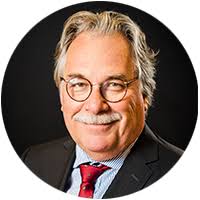Together we stand, divided we fall!

Ilkka Salonen,
Executive Chairman of the Board,
East Office of Finnish Industries,
Finland
I am sure that I am not the only one who has with a heavy heart followed Russia isolating itself from the so-called Western world.[i] It is clear, that geopolitics is playing its role in keeping the tendency going on so, as always, there are two parties also in this tango. It is however hard to escape the conclusion that there are in addition strong internal Russian drivers enforcing this process.
As an ex-economist I find it sad when nations do not follow the idea of relative advantage usually credited to the great British economist David Ricardo (1772 – 1823). The basic logic of this principle is very simple: every nation should be engaged with the activity in which it has the greatest efficiency advantage relative to the other nations. This makes the system as a whole better off. This principle is unfortunately often overridden by short-sighted and somewhat populistic policies.
For us Finns the Russian unwillingness to be part of the international division of labor – and here I use the word “labor” in its widest meaning – is even more unfortunate as we have opportunities and reasons to work together[ii] in so many areas and on multiple of levels. (I hope our Russian friends feel the same.)
Being also a realist, I do not see, that the situation could get better very soon even though I am positive, that in the long run sense will once again win. The question is, how we should act until we reach the long run? The obvious answer is to find things in which the interests of both parties are aligned and strong enough to keep the spirit of co-operation alive.
Environmental issues come easily to mind in this context. As we have felt and seen in the past air pollution does not recognize boarders of states. Same goes for substances spoiling rivers, lakes and seas, our water reservoirs. The only way to turn the tide here is to have joint projects. There is plenty of money around and if the governments agree to go for common goals, the ideas can be transformed into deeds. Even though I am an advocate of usage of market mechanisms where possible, I find it hard to believe that cross-border environmental projects are doable without respective governments being involved.
A shining example of an initiative which at the outset seems practically impossible and then turns in to a huge success is the project realized in the -90s in St.Petersburg. Joint efforts of Russians and Finns as well as other Nordic countries enabled investments into the sewage treatment of St.Pete benefitted greatly all the countries at the shores of the Baltic Sea.
Waste management is something which Finland started later than many other European countries, but once the process started, the people were fast to learn (strict rules helped quite a lot). Today there is a lot of know-how and technology which could be transferred to the Russian municipalities in this area of activity. It is 100 pct. sure that the gaps existing in waste management in Russia today must be closed rather sooner than later and there is no need to invent the bicycle for a second time.
Actually we have here covered the first letter of the three-lettered concept which is becoming more and more important throughout the world: ESG. It has been very interesting to follow how Russian economic agents, after a somewhat slow start, have started to place environmental, social and governance aspects of life higher and higher in their priorities. The push the international customers and investors create towards the large Russian exporting companies and financial institutions play an important role here, but Russian consumer, especially in the big cities, is also more and more conscious about the impact of the choices they make on the environment when executing purchases.
It is also good to remember that life is not only about the economy. The interaction between the neighboring nations was ruthlessly cut by the Covid-19 pandemic in 2020. The opportunities for Russians and Finns to meet each other just for social contacts have not yet been restored. Especially in times when the international political arena is somewhat tense and uncertain the dialogue between people of neighboring countries becomes not only important but vital. By talking to each other we notice that despite the noise created by the ambitions of the politicians, we, ordinary people, have not changed and can continue the interaction in good spirit.
[i] As a kind of disclaimer I would like to note that I am not even attempting to evaluate the reasons, let alone looking for the good and bad ones in this process. The aim is just to make some observations how the processes look in the eyes of “an innocent bystander”. It is also appropriate to point out that same kind of isolationistic policies are conducted in many other countries who claim “to put their own country first”.
[ii] The head-line used here is from a song called “Let’s work together” performed by Canned Heat, one of the best R&B groups of the 70’s.
Expert article 3069
> Back to Baltic Rim Economies 4/2021
To receive the Baltic Rim Economies review free of charge, you may register to the mailing list.
The review is published 4-6 times a year.
